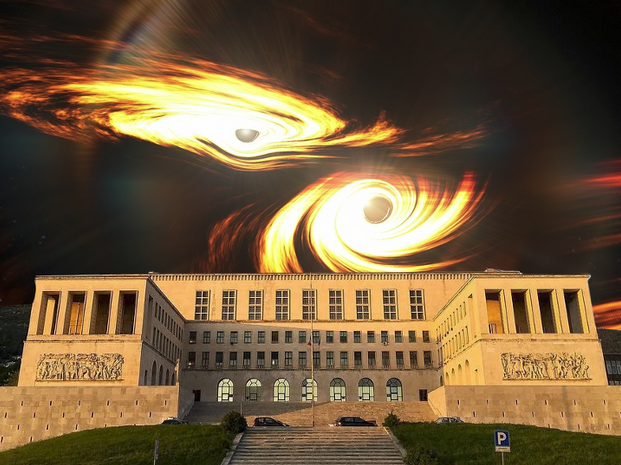New Record Achieved by LIGO-Virgo-KAGRA Gravitational Wave Detectors

The Virgo gravitational wave detector, located in Italy near Pisa, is part of a larger network of detectors alongside the LIGO observatories in the United States and the KAGRA detector in Japan. The gravitational waves detected so far originate from the merger of binary systems composed of massive and compact astrophysical objects, such as black holes and neutron stars.
The LIGO-Virgo-KAGRA detectors alternate between observation periods and phases dedicated to instrumental upgrades, aimed at enhancing their sensitivity to gravitational wave signals from increasingly distant and faint sources. The fourth observation run, which began in May 2023, is currently ongoing. During this phase, researchers from the LIGO-Virgo-KAGRA collaboration monitor the status of the detectors 24/7 through data taking shifts, leveraging the presence of collaborators worldwide. The researchers on duty, known as shifters, are also responsible for verifying that when online data analysis algorithms flag a potential astrophysical event, the data quality is optimal. If confirmed, the shifters issue alerts via a dedicated NASA service (link), notifying the astrophysical community, which can then point telescopes toward the indicated direction in an attempt to detect additional signals from the same astrophysical event.
On March 19, 2025, at 07:25 local time, a signal was detected by the LIGO and Virgo detectors (while KAGRA was offline), likely originating from a binary black hole system approximately 15 billion light-years away from Earth. At the time of the detection, three researchers from the Department of Physics at the University of Trieste—Davide Di Piero, Giuseppe Troian, and Agata Trovato—were on shift and were responsible for validating the event and notifying the scientific community (event page).
This event marks a new record: it is the 200th signal with a likely astrophysical origin detected during the fourth observation run! This achievement is particularly remarkable, as fewer than 100 events were detected in total during the first three observation periods, making the current total number of detections truly impressive.
The Gravitational Wave Open Data Workshop was held in mid-May and the hands-on sessions were held at the Department of Physics of the University of Trieste.
For information: Agata Trovato, agata.trovato@units.it.


